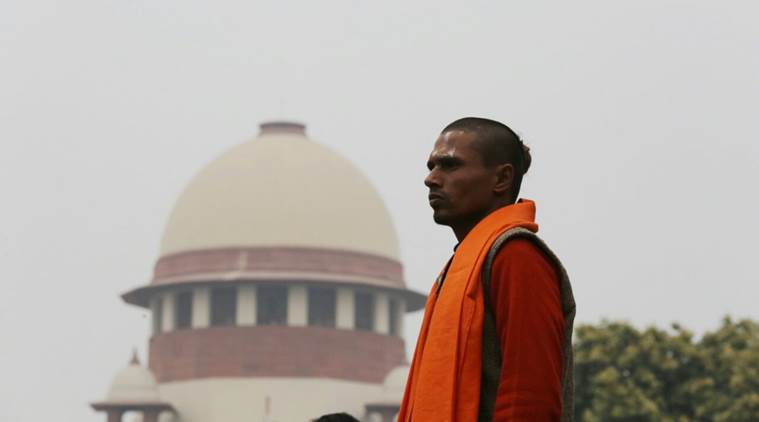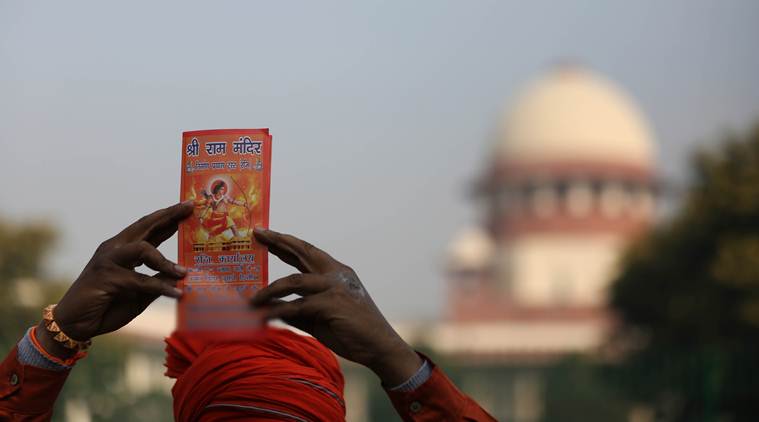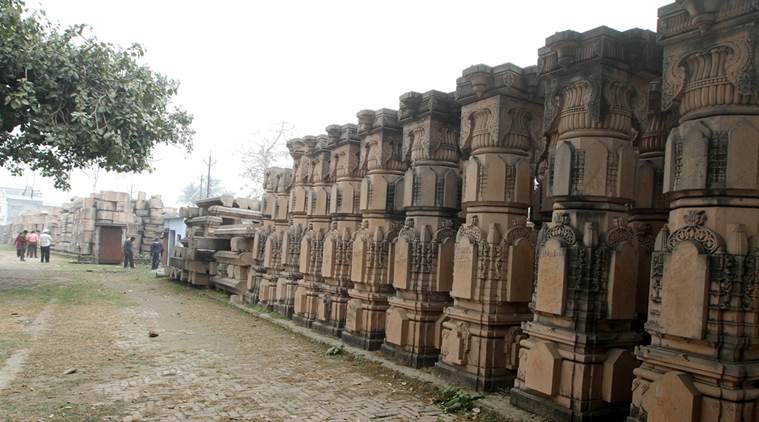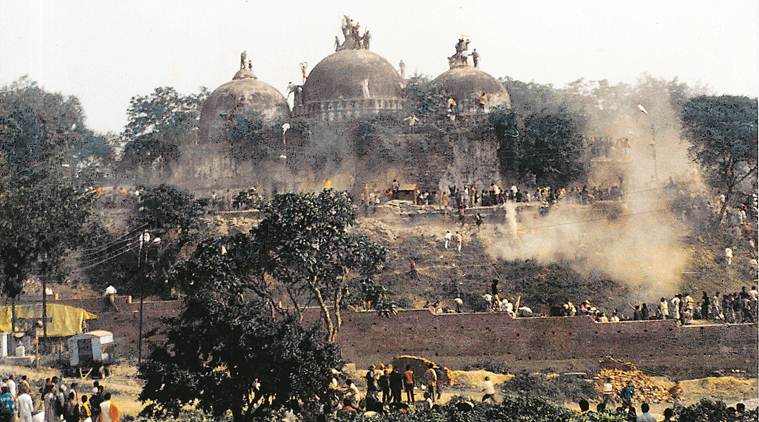
The Supreme Court Friday ordered mediation to find a solution to the long-standing Ayodhya’s Ram Janmabhoomi-Babri Masjid land dispute case. The mediation will be held in Uttar Pradesh’s Faizabad district and former apex court judge Justice (retd) F M I Kalifulla will head a panel of mediators in the case. Other members of the mediation panel are Sri Sri Ravi Shankar and Senior Advocate Sriram Panchu.
The five-judge bench headed by Chief Justice Ranjan Gogoi asked the panel to give the progress report of the matter in four weeks and to complete the talks in eight weeks.
Explained: The three mediators in the Ayodhya dispute
The bench also said the panel of mediators may co-opt more members in case of any difficulty. The mediation processes will be in-camera and the media is refrained from publishing the details of the proceedings. “We do not find any legal impediment in referring the matter to mediation,” the bench said adding that “utmost confidentiality” should be maintained to ensure the success of mediation proceedings.
Follow Supreme Court on Ayodhya dispute LIVE updates
A bench of CJI Gogoi and Justices S A Bobde, D Y Chandrachud, Ashok Bhushan and S Abdul Nazeer said it had considered the relevant provisions of the Civil Procedure Code and said it did not find any legal impediment to refer the matter to mediation.
#Ayodhya | Here’s what the Supreme Court has ordered today. #Mediation https://t.co/smstaXhFSy pic.twitter.com/U3YcZNASfh
— The Indian Express (@IndianExpress) March 8, 2019
On Wednesday, a five-judge Constitution Bench headed by CJI Gogoi had reserved the order after hearing various contesting parties. The suggestion for mediation had come from the bench on February 26 when it took up the appeals against the September 30, 2010 verdict of the Allahabad High Court. The HC had ordered a three-way division of the disputed 2.77 acres of the Ram Janmabhoomi-Babri Masjid site between the Nirmohi Akhara sect, the Sunni Central Wakf Board, Uttar Pradesh and the deity Ramlalla Virajman.
Respecting everyone, turning dreams to reality, ending long-standing conflicts happily and maintaining harmony in society – we must all move together towards these goals.#ayodhyamediation
— Sri Sri Ravi Shankar (@SriSri) March 8, 2019
The court said it could only decide on the property and what it was looking at was “a possibility of healing relationships”. It sought the views of the parties on the court invoking section 89 of the Civil Procedure Code which deals with mediation. Section 89 says that “Where it appears to the court that there exist elements of a settlement which may be acceptable to the parties, the court shall formulate the terms of settlement and give them to the parties for their observations and after receiving the observations of the parties, the court may reformulate the terms of a possible settlement and refer the same for a) arbitration; b) conciliation; c) judicial settlement including settlement through Lok Adalat; or d) mediation”.

During the hearing, the court Wednesday observed that the issue is primarily not about the disputed 2.77 acres of the Ram Janmabhoomi-Babri Masjid site in Ayodhya, but about religious sentiments. Most of the Hindu petitioners, including those representing deity Ramlalla Virajman, and the Uttar Pradesh government had opposed the offer of mediation. The Muslim bodies had extended their support to the idea but had raised objections over privacy during the negotiations.
Senior counsel Rajeev Dhavan representing one of the appellants favouring the Babri Masjid had favoured the suggestion, but senior counsel C S Vaidyanathan representing the deity Ramlalla Virajman opposed this.

Vaidyanathan sought to stress that mediation would not be feasible. “The question of building a temple at the site of birth of Ram is non-negotiable. What can best be done is to give alternate land for building Mosque. And we are willing to crowdfund it,” he had said. Justice Bobde told him that he could raise the point during mediation. Vaidyanathan pointed out that negotiation had been attempted even before by the Allahabad High Court. Solicitor General Tushar Mehta, appearing for the Uttar Pradesh government, said mediation was not advisable given the circumstances.

During the hearings, advocate Hari Shankar Jain, representing a faction of the Hindu Mahasabha, had also said the mediation process was bound to fail as there could be no compromise on the place of the birth of Lord Ram. “It’s a question of our faith and sentiments. It’s Ramjanmabhoomi. There is no question of compromise,” he added.
Justice Bobde replied saying, “You are assuming that there can only be one outcome… Are you not saying it’s going to be a failure even before we have ordered it… That is not fair. That is prejudging the outcome. We are of the view that this is not just a dispute about the land. It’s one about sentiments.”